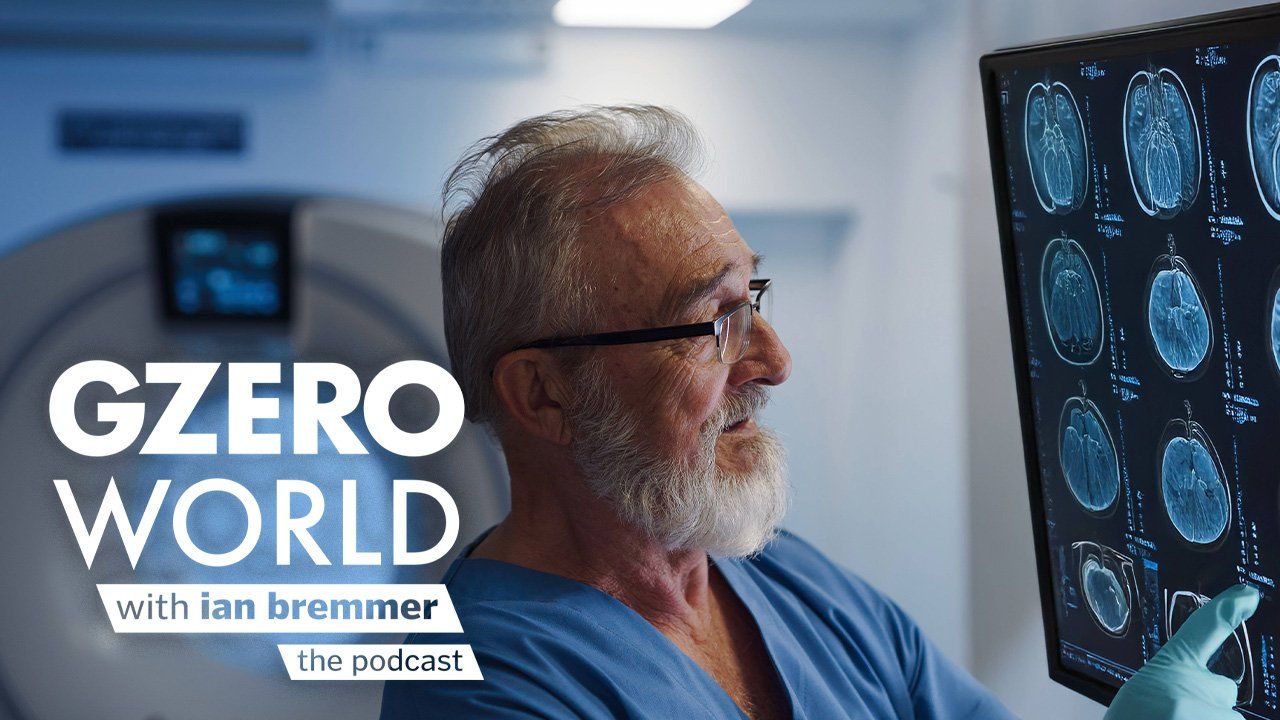September 06, 2025
Listen: Nearly 1 in 2 men and 1 in 3 women in the US will be diagnosed with cancer, and 1,700 people die from it every day. Disparities persist—Black women are 40% more likely to die of breast cancer than white women—and treatment costs remain crushing for many.
On the latest episode of the GZERO World podcast, Ian Bremmer talks with world-renowned cancer researcher and Pulitzer Prize-winning author Siddhartha Mukherjee about the future of medicine—and why artificial intelligence might finally tip the scales in the decades-long war on cancer.
Cancer remains the second leading cause of death in the US, killing nearly 1,700 people every day. But Mukherjee says AI is already reshaping the field, from radiology and diagnostics to identifying new carcinogens and designing entirely new cancer drugs. “Every time we do this in collaboration with a machine,” he explains, “the machine learns it, and it learns it forever.”
In a wide-ranging conversation, Mukherjee breaks down three major areas where AI is advancing medicine: patient care, data mining, and generative drug development. He also weighs in on early cancer detection, how inflammation may hold the key to understanding new carcinogens, and why this moment may be the most hopeful in half a century of cancer research.
Subscribe to the GZERO World Podcast on Apple Podcasts, Spotify, Stitcher, or your preferred podcast platform, to receive new episodes as soon as they're published
More For You
Prime Minister Narendra Modi, with President of the European Council António Luís Santos da Costa, and President of the European Commission Ursula von der Leyen, at Hyderabad House, in New Delhi, India, on Jan. 27, 2026.
DPR PMO/ANI Photo
On Tuesday, the world’s largest single market and the world’s most populous country cinched a deal that will slash or reduce tariffs on the vast majority of the products they trade.
Most Popular
Sponsored posts
Five forces that shaped 2025
What's Good Wednesdays
What’s Good Wednesdays™, January 28, 2026
Mexican President Claudia Sheinbaum Pardo stands alongside Canadian Prime Minister Mark Carney and US President Donald Trump during the 2026 World Cup draw at the John F. Kennedy Center for the Performing Arts in Washington, D.C., on December 5, 2025.
Deccio Serrano/NurPhoto
Canadian Prime Minister Mark Carney has repeatedly tussled with US President Donald Trump, whereas Mexican President Claudia Sheinbaum has tried to placate him. The discrepancy raises questions about the best way to approach the US leader.
Fighters of the Qassam Brigades, the armed wing of the Palestinian Islamist Hamas movement, attend a rally marking the 35th anniversary of the group's foundation in Gaza City on December 14, 2022.
Photo by Majdi Fathi/NurPhoto
10,000: The number of Hamas officers that the militant group reportedly wants to incorporate into the US-backed Palestinian administration for Gaza, in the form of a police force.
Walmart is investing $350 billion in US manufacturing. Over two-thirds of the products Walmart buys are made, grown, or assembled in America, like healthy dried fruit from The Ugly Co. The sustainable fruit is sourced directly from fourth-generation farmers in Farmersville, California, and delivered to your neighborhood Walmart shelves. Discover how Walmart's investment is supporting communities and fueling jobs across the nation.
© 2025 GZERO Media. All Rights Reserved | A Eurasia Group media company.
